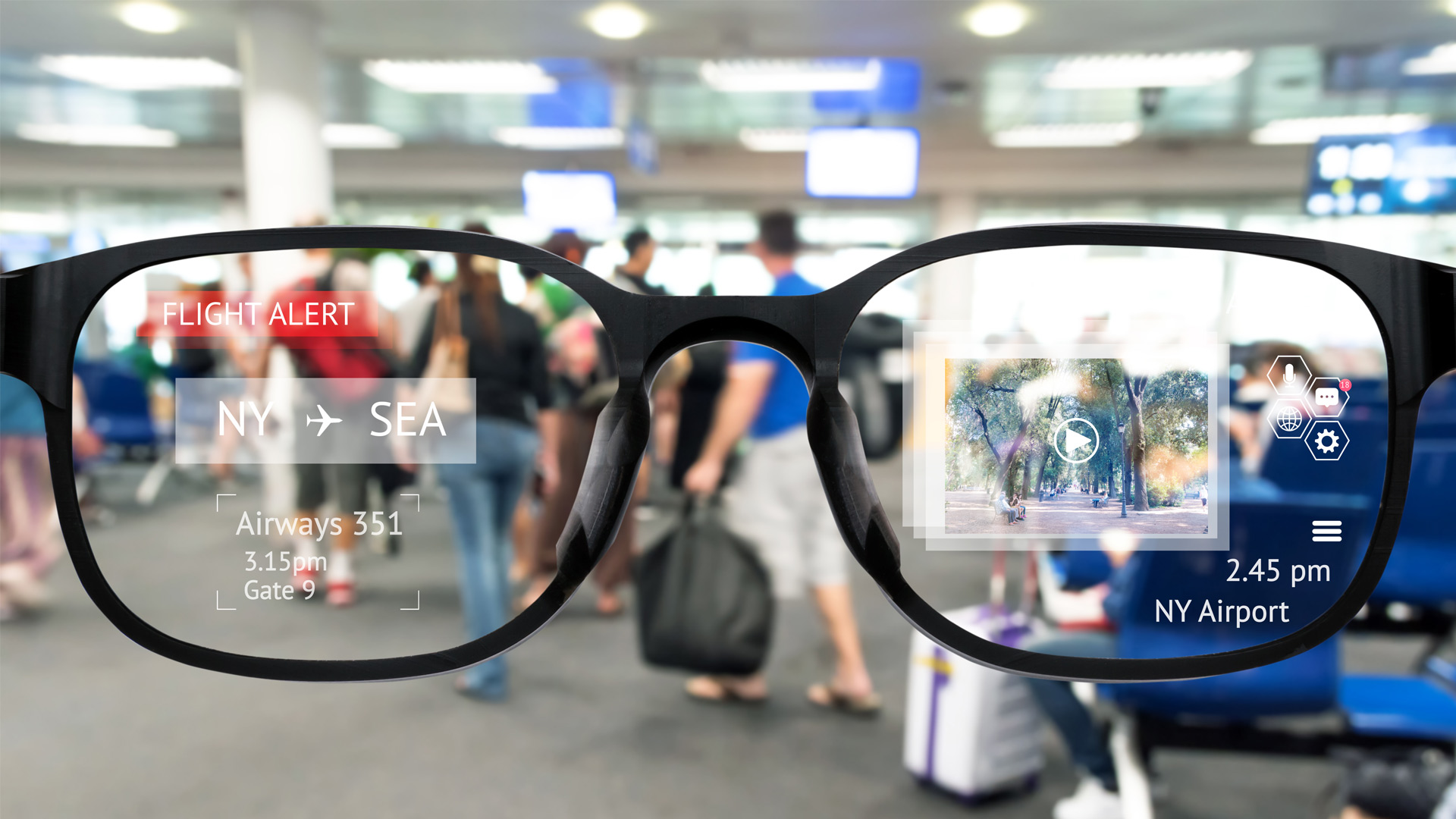A new Google AR headset? Just don't call it Google Glass 3.0
Google might be getting back into the AR headgear game - is that a good thing?

Sign up for breaking news, reviews, opinion, top tech deals, and more.
You are now subscribed
Your newsletter sign-up was successful
Google is reportedly making a new AR headset -- and this tech junkie is having flashbacks.
This was me in 2013, an idiot greeting the world while wearing a monocular AR device that made me look like a 21st Century Mad-Eye Moody.
I could blame Google. It was their Google Glass AR headset, after all ... but the fault really lies with me for not recognizing that I looked like a Glasshole.

In truth, Google Glass was incredible wearable technology, way ahead of its time. I mean way ahead. So far ahead that no one understood that you can't just have innovation for the sake of innovation. There's an aesthetic aspect. Anything you put on your body must be attractive or at least look like it belongs there. Google Glass failed that litmus test.
The technology was proto-augmented reality. The roughly 25-inch overlay screen virtually floating in front of your face didn't so much interact or augment your environment as it did inform you without totally distracting you from real life. The idea of imagery interacting with real-world objects was at least a few years out.
Even so, there were apps, and you could control the system with gestures on the device (and head movements, which made you look even stranger). Much of what Google Glass did and the promise it held inspired future AR and VR interfaces. And with the interest in AR today, the future isn't that far off.
Back to AR
And now the world is arguably obsessed with both virtual platforms (see Metaverse).
Sign up for breaking news, reviews, opinion, top tech deals, and more.
With its Oculus headgear, Facebook has the pole position in the VR space and is now actively courting potential AR wearable fans with Facebook Ray-Ban Stories smart glasses. For now, there's no screen - they're video and photo capture devices, but you know where this is going. Facebook is smart to start with attractive frames and build from there.
Apple is hot on AR too - Tim Cook says so - and is allegedly working on its own AR headgear that may or may not leave most of the processing power in the iPhone you'll probably have in your pocket.
With all this renewed interest, how could Google not take another run at the wearable AR headgear space?
According to a report in The Verge, the search giant has set up a team and christened it Project Iris. The latest story builds on earlier reports about Google's intentions.
Unlike Google Glass, this headgear will feature cameras to pull in the world and use AR imagery both locally and from the Google cloud to make an augmented reality whole.
I think it's fair to assume that it will differ from Glass in other critical ways. Instead of one projected display over a single eye, it'll probably be a dual-screen stereo view. It should also look like a traditional pair of glasses - or at least as much as they can while carrying tiny displays, chips (probably one of Google's Tensor mobile CPUs), speakers, and microphones so you can talk to Google.
In fact, that last bit may be the way in which Project Iris's AR goggles most resemble Google Glass. Even though the original headset supported some gestures, most of us primarily controlled it via voice.
Yes, this was the other way in which I doubled my shame and the embarrassment of friends and family by constantly speaking to Google Glass, even as some people didn't realize what I was wearing.
Better technology
Google's next AR headgear will benefit from vastly improved far-field microphones - the kind they use in Google Home devices - which means we won't have to shout or even speak in a normal voice. A whisper should do.
Even the gesture technology should improve thanks to Google's radar integration experience with their Pixel phones.
The report notes that Google is still hiring and developing and that the first product could be years away.
Still the specter of Google Glass - a now not-quite-dead enterprise product - will never be far from these efforts. Whatever Google finally produces must be as least as beautiful as anything from Ray-Ban or Apple (which will be first). It should be effortless to use, powerful but private (a tough one for Google), and not spark even the mildest form of embarrassment.
It will not be the next Google Glass. Project Iris, or whatever Google is actually calling it, must be something more.
That said, I'll slap whatever they do produce on my face and call it a day. I have no shame.

A 38-year industry veteran and award-winning journalist, Lance has covered technology since PCs were the size of suitcases and “on line” meant “waiting.” He’s a former Lifewire Editor-in-Chief, Mashable Editor-in-Chief, and, before that, Editor in Chief of PCMag.com and Senior Vice President of Content for Ziff Davis, Inc. He also wrote a popular, weekly tech column for Medium called The Upgrade.
Lance Ulanoff makes frequent appearances on national, international, and local news programs including Live with Kelly and Mark, the Today Show, Good Morning America, CNBC, CNN, and the BBC.